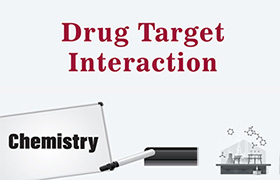CBSE Class 12-science Answered
how is organic chemistry useful in our daily life or further....???? and i need some tips on how to study organic chemistry and what are the key points to remember in it........plsss help i am student of topperlearning.....
Asked by chaitanyakarthik777 | 17 Aug, 2018, 21:28: PM
Organic chemistry is the branch of chemistry which deals with the study of carbon and its compounds which includes their derivatives, preparations, of course, chemical reactions and equations, their purifications and application of organic compounds to improve the standards of living of mankind.
The organic chemistry is all around us,
lets first start with the mostly used organic compound which is the polymer, we used polythene or plastic bags, things made up polymers are like chairs, sheets, tables etc,
also, petrochemical products obtained from crude oil like petrol, diesel, Kerosene, naphthalene etc.
And all the cleaning agents like soap and detergents they are also made of the long chain of polymers.
In the production of Perfumes and cosmetics, organic compounds play a very important role.
Also in medicines and agriculture research chemistry has an important part.
There are so many organic compounds which we are using in our daily life.
How to study organic chemistry:
1)Start your study by following NCERT textbook. Understand the concepts well. Highlight the main points or underline the main points in the book. Solve the NCERT textbook exercises. Once you complete a chapter you should thoroughly aware of the different types of questions in the NCERT textbook.
2)After a textbook tries out some other textbooks for solving numerical, organic reactions etc. Revise frequently what you have studied earlier.
Don't leave many gaps between something studied earlier and something you are starting new. Try using mnemonics to remember tough concepts.
Try to test yourself after completing a chapter. For this, you can take our online tests.
3) For the conversion reactions in organic chemistry:
- Try to understand the mechanism of the reactions.
- There are specific mechanisms for the reactions and they are somehow related too. For example, if one has understood the types of nucleophilic substitution reactions SN1 and SN2 then any type of substitution with any reactant can be handled.
- To get a good hold on the conversations, you must remember the main chemical reactions and the synthesis of compounds like carbonyls, acids, amines etc.
- Do remember simple steps of preparations of compounds, and yes basic name reactions like aldol reaction help a lot.
- Practice the equations by forming the product and then again forming the reactants from products, one must learn both the conditions so that at any step of conversion you are able to attempt it easily.
- Learn the rules of IUPAC nomenclature thoroughly. This will help you in naming compounds accurately.
- You need to be able to name a compound from its given formula.
4) As per the marks distribution:
- 2 marks for the named reaction so make a list of name reaction from each unit, describe in brief and write general reaction and its application. Most of the conversions for 5 marks are also from these reactions.
- 6 marks for reasoning- List out the important reasoning of each unit and write the key factor responsible. example the acidic strength of the carboxylic acid, phenols are acidic, the strength of amines, reactivity of aldehydes and ketones, solubility and boiling points of organic compounds.
- 2 marks reaction mechanism. write nucleophilic and electrophilic addition and substitution with examples.
- 2 marks distinguishing test- important pairs to remember are aldehyde and ketone, alcohols and phenol, phenol and acid, primary secondary and tertiary amines, methanol and ethanol, HCHO and CH3CHO. write these tests with the balanced equation. Also, write one test for each functional group and try to recollect as most of them you have done in practicals also.
- It is important to remember common reducing agent, an oxidising agent, acylation, dehydrating agents, nitration and halogenating mixtures as this help you to convert compound.
- Stick all these lists on your study table and go through them twice a day. in 2 days automatically you will recollect by number and place in the list the reactions.
- TRY TO UNDERSTAND THE REACTION BY MAKING YOUR OWN SIMPLE LOGIC LIKE--
- Dehydration means removal of water, if C2H5OH is dehydrated minus H2O. C2H4 will remain. You have to write and learn reactions in organic chemistry and it is effective if you do it with understanding. Repetition and writing is the only way to remember organic.
- If still, you have doubts you can find solutions to them just by posting your queries in doubt and solutions, we are happy to help you as you are student of topper learning.
- And at last study smarter than harder. Best of luck!!
Answered by Ramandeep | 22 Aug, 2018, 19:39: PM
Concept Videos
CBSE 12-science - Chemistry
Asked by ajaysankhala051 | 10 Feb, 2020, 01:00: AM
CBSE 12-science - Chemistry
Asked by bhatnagardrpiyush | 18 Jun, 2019, 16:50: PM
CBSE 12-science - Chemistry
Asked by chaitanyakarthik777 | 17 Aug, 2018, 21:28: PM
CBSE 12-science - Chemistry
Asked by Atulcaald | 31 May, 2018, 21:43: PM
CBSE 12-science - Chemistry
Asked by Topperlearning User | 04 Jul, 2014, 14:52: PM
CBSE 12-science - Chemistry
Asked by Topperlearning User | 22 Jun, 2016, 10:47: AM
CBSE 12-science - Chemistry
Asked by Topperlearning User | 04 Jun, 2014, 13:23: PM
CBSE 12-science - Chemistry
Asked by Topperlearning User | 08 Jul, 2014, 17:17: PM
CBSE 12-science - Chemistry
Asked by Topperlearning User | 22 Jun, 2016, 10:43: AM
CBSE 12-science - Chemistry
Asked by Topperlearning User | 22 Jun, 2016, 10:43: AM






